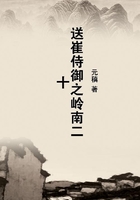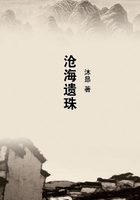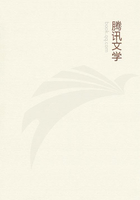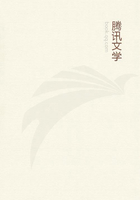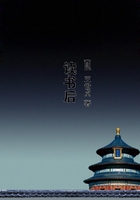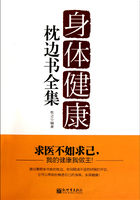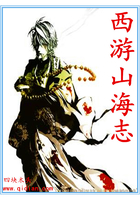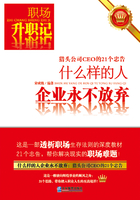SECOND PREFACE to the same When, amidst various literary pursuits, I first applied my mind to the compilation of history, I determined, lest I should appear ungrateful to my native land, to describe, to the best of my abilities, my own country and its adjoining regions; and afterwards, under God's guidance, to proceed to a description of more distant territories. But since some leading men (whom we have both seen and known) show so great a contempt for literature, that they immediately shut up within their book-cases the excellent works with which they are presented, and thus doom them, as it were, to a perpetual imprisonment; I entreat you, illustrious Prelate, to prevent the present little work, which will shortly be delivered to you, from perishing in obscurity. And because this, as well as my former productions, though of no transcendent merit, may hereafter prove to many a source of entertainment and instruction, I entreat you generously to order it to be made public, by which it will acquire reputation. And I shall consider myself sufficiently rewarded for my trouble, if, withdrawing for a while from your religious and secular occupations, you would kindly condescend to peruse this book, or, at least, give it an attentive hearing; for in times like these, when no one remunerates literary productions, I neither desire nor expect any other recompense. Not that it would appear in any way inconsistent, however there exists among men of rank a kind of conspiracy against authors, if a prelate so eminently conspicuous for his virtues, for his abilities, both natural and acquired, for irreproachable morals, and for munificence, should distinguish himself likewise by becoming the generous and sole patron of literature. To comprise your merits in a few words, the lines of Martial addressed to Trajan, whilst serving under Dioclesian, may be deservedly applied to you:
"Laudari debes quoniam sub principe duro, Temporibusque malis, ausus es esse bonus."
And those also of Virgil to Mecaenas, which extol the humanity of that great man:
"Omnia cum possis tanto tam clarus amico, Te sensit nemo posse nocere tamen."
Many indeed remonstrate against my proceedings, and those particularly who call themselves my friends insist that, in consequence of my violent attachment to study, I pay no attention to the concerns of the world, or to the interests of my family; and that, on this account, I shall experience a delay in my promotion to worldly dignities; that the influence of authors, both poets and historians, has long since ceased; that the respect paid to literature vanished with literary princes; and that in these degenerate days very different paths lead to honours and opulence.
I allow all this, I readily allow it, and acquiesce in the truth.
For the unprincipled and covetous attach themselves to the court, the churchmen to their books, and the ambitious to the public offices, but as every man is under the influence of some darling passion, so the love of letters and the study of eloquence have from my infancy had for me peculiar charms of attraction. Impelled by this thirst for knowledge, I have carried my researches into the mysterious works of nature farther than the generality of my contemporaries, and for the benefit of posterity have rescued from oblivion the remarkable events of my own times. But this object was not to be secured without an indefatigable, though at the same time an agreeable, exertion; for an accurate investigation of every particular is attended with much difficulty. It is difficult to produce an orderly account of the investigation and discovery of truth; it is difficult to preserve from the beginning to the end a connected relation unbroken by irrelevant matter; and it is difficult to render the narration no less elegant in the diction, than instructive in its matter, for in prosecuting the series of events, the choice of happy expressions is equally perplexing, as the search after them painful. Whatever is written requires the most intense thought, and every expression should be carefully polished before it be submitted to the public eye; for, by exposing itself to the examination of the present and of future ages, it must necessarily undergo the criticism not only of the acute, but also of the dissatisfied, reader. Words merely uttered are soon forgotten, and the admiration or disgust which they occasioned is no more; but writings once published are never lost, and remain as lasting memorials either of the glory or of the disgrace of the author. Hence the observation of Seneca, that the malicious attention of the envious reader dwells with no less satisfaction on a faulty than on an elegant expression, and is as anxious to discover what it may ridicule, as what it may commend; as the poet also observes:
"Discit enim citius meminitque libentius illud Quod quis deridet, quam quod probat et veneratur."
Among the pursuits, therefore, most worthy of commendation, this holds by no means the lowest rank; for history, as the moral philosopher declares, "is the record of antiquity, the testimony of ages, the light of truth, the soul of memory, the mistress of conduct, and the herald of ancient times."
This study is the more delightful, as it is more honourable to produce works worthy of being quoted than to quote the works of others; as it is more desirable to be the author of compositions which deserve to be admired than to be esteemed a good judge of the writings of other men; as it is more meritorious to be the just object of other men's commendations than to be considered an adept in pointing out the merits of others. On these pleasing reflections I feed and regale myself; for I would rather resemble Jerome than Croesus, and I prefer to riches themselves the man who is capable of despising them. With these gratifying ideas I rest contented and delighted, valuing moderation more than intemperance, and an honourable sufficiency more than superfluity; for intemperance and superfluity produce their own destruction, but their opposite virtues never perish; the former vanish, but the latter, like eternity, remain for ever; in short, I prefer praise to lucre, and reputation to riches.

